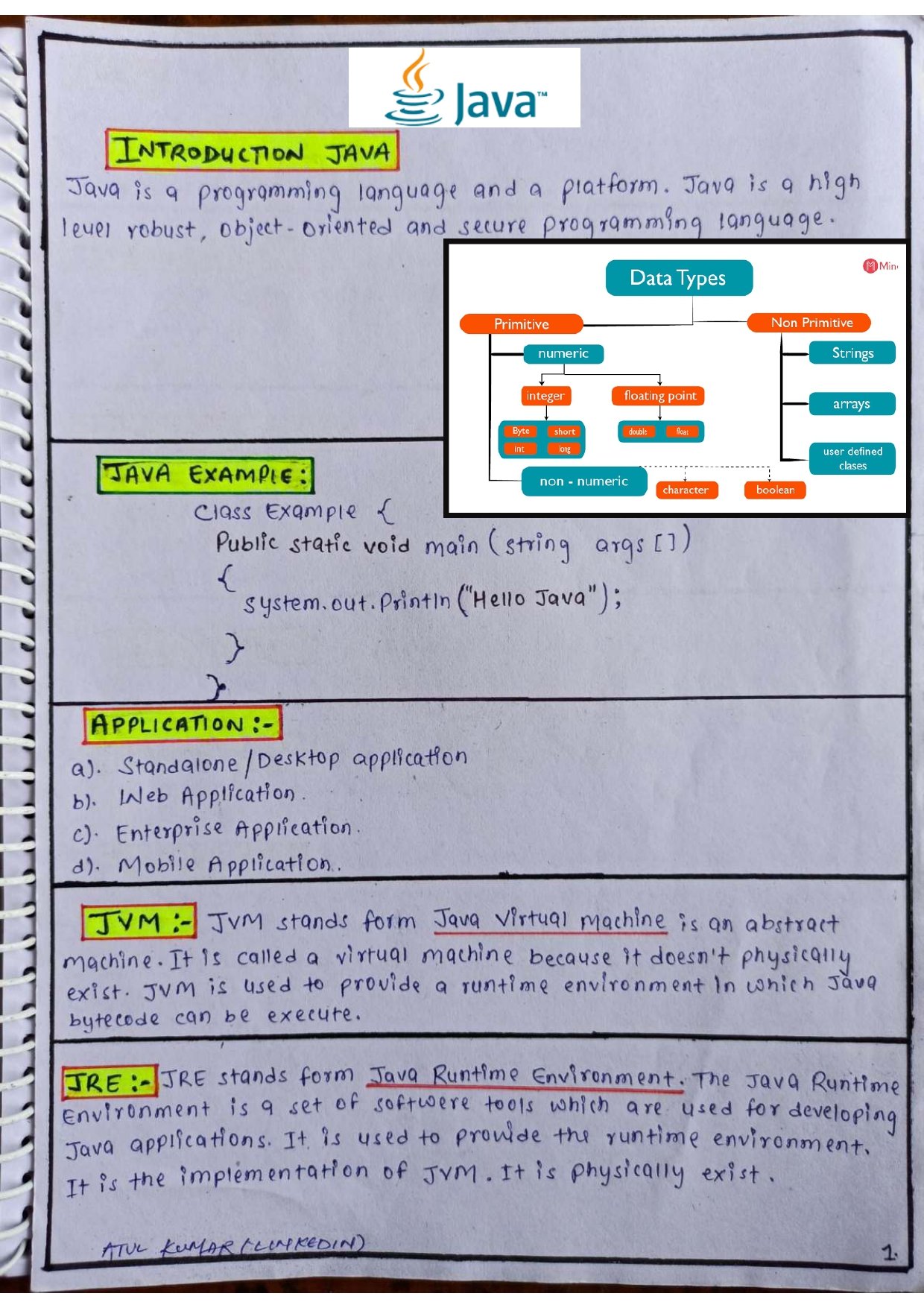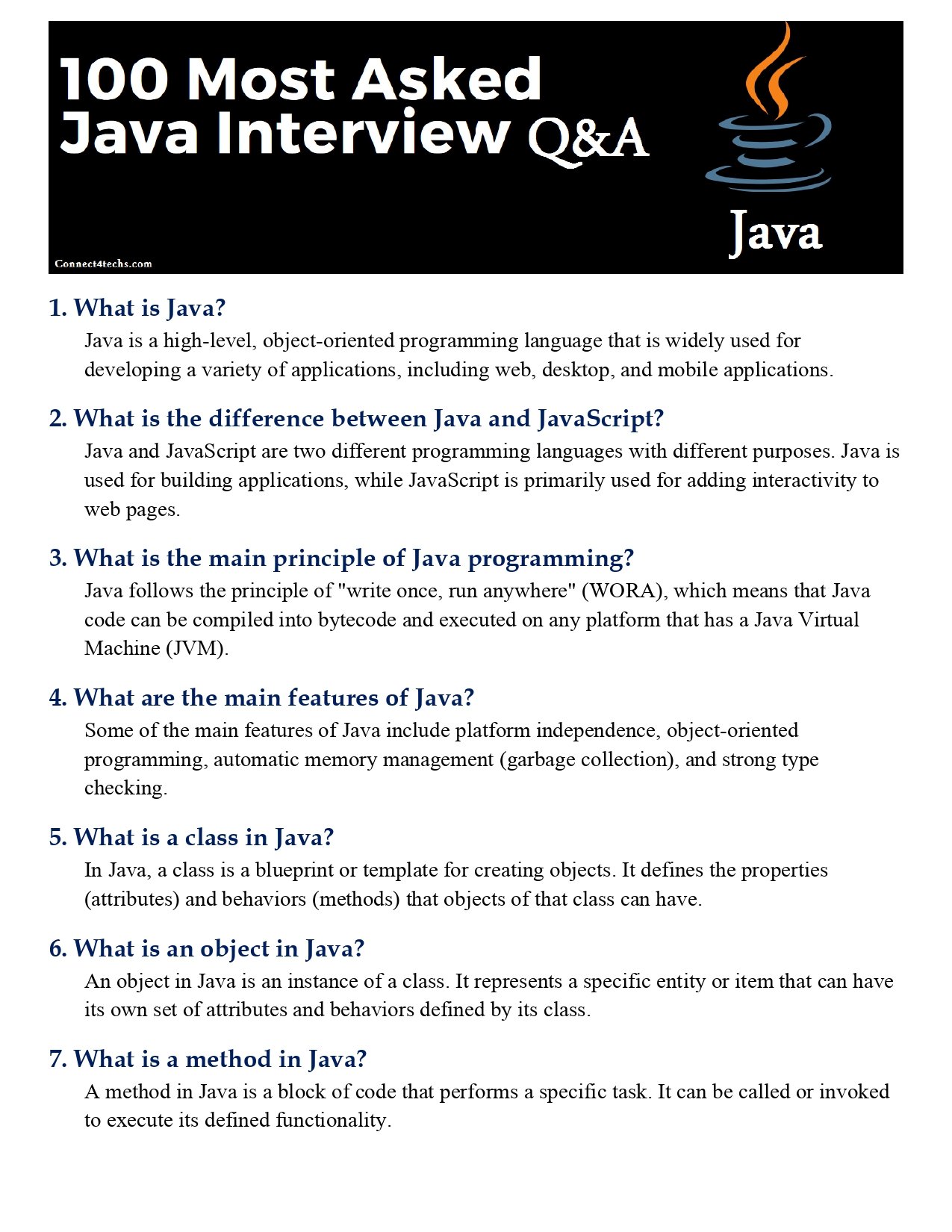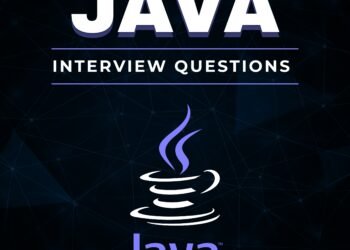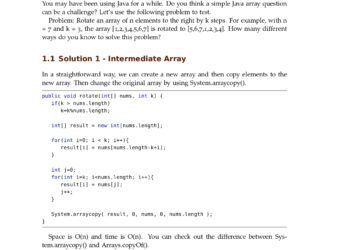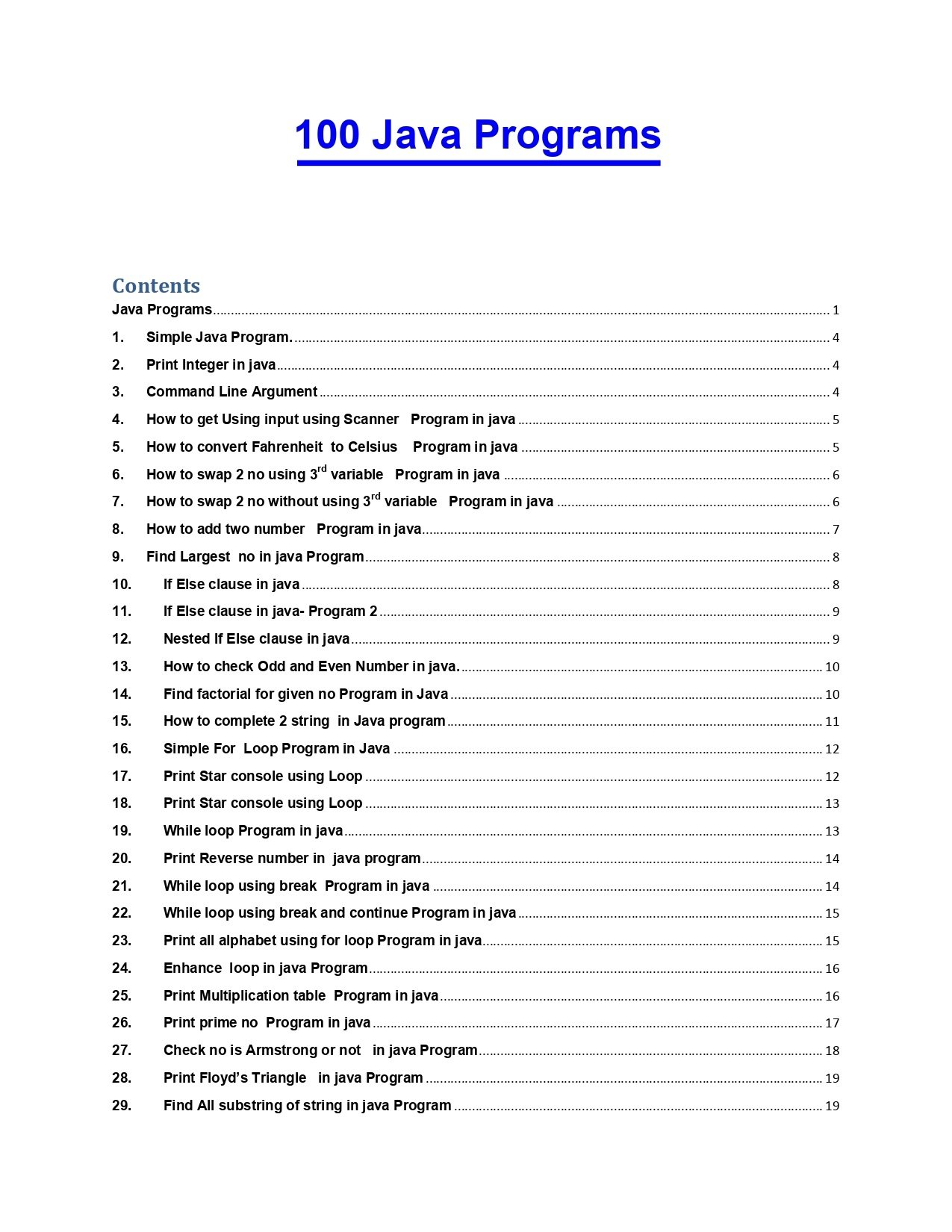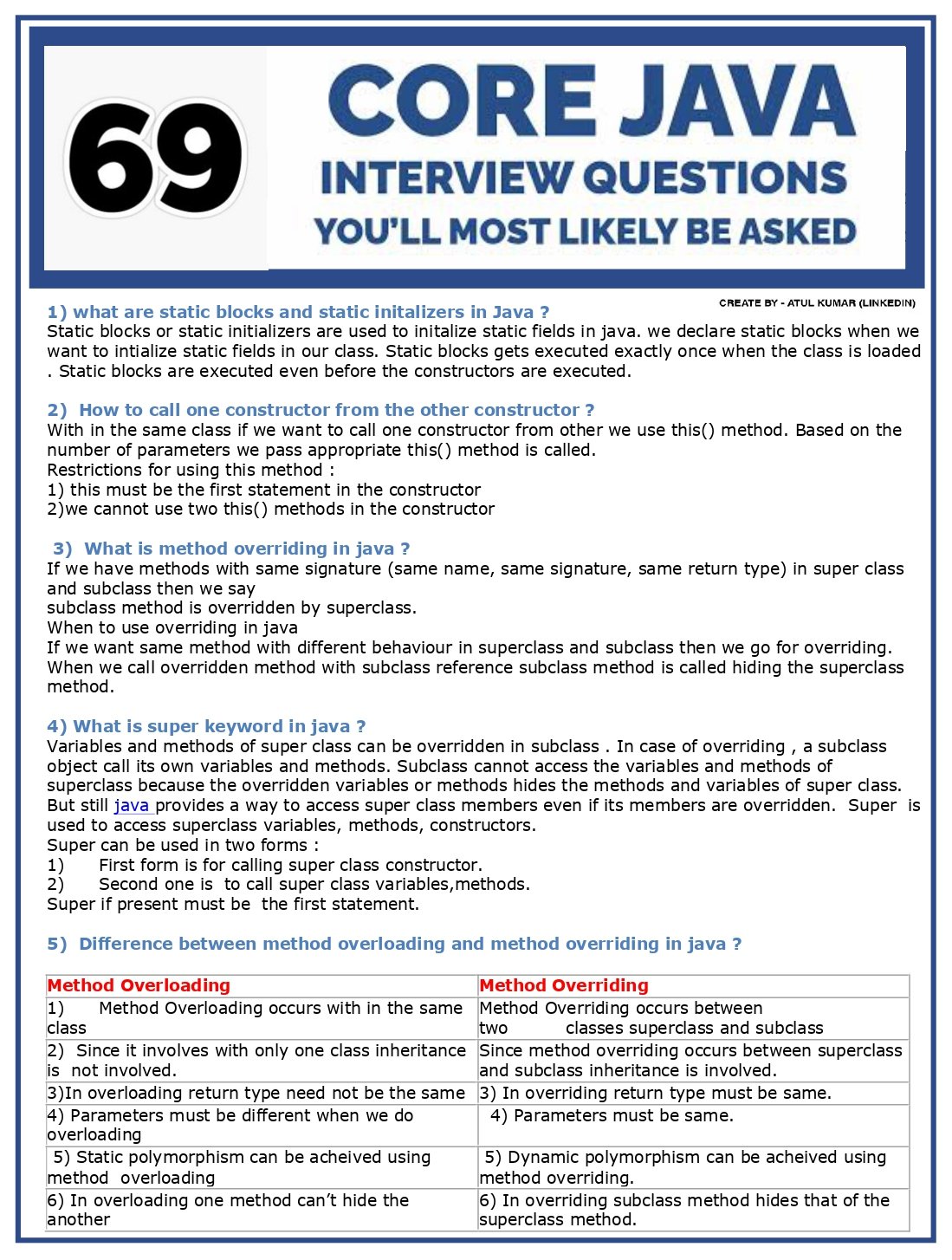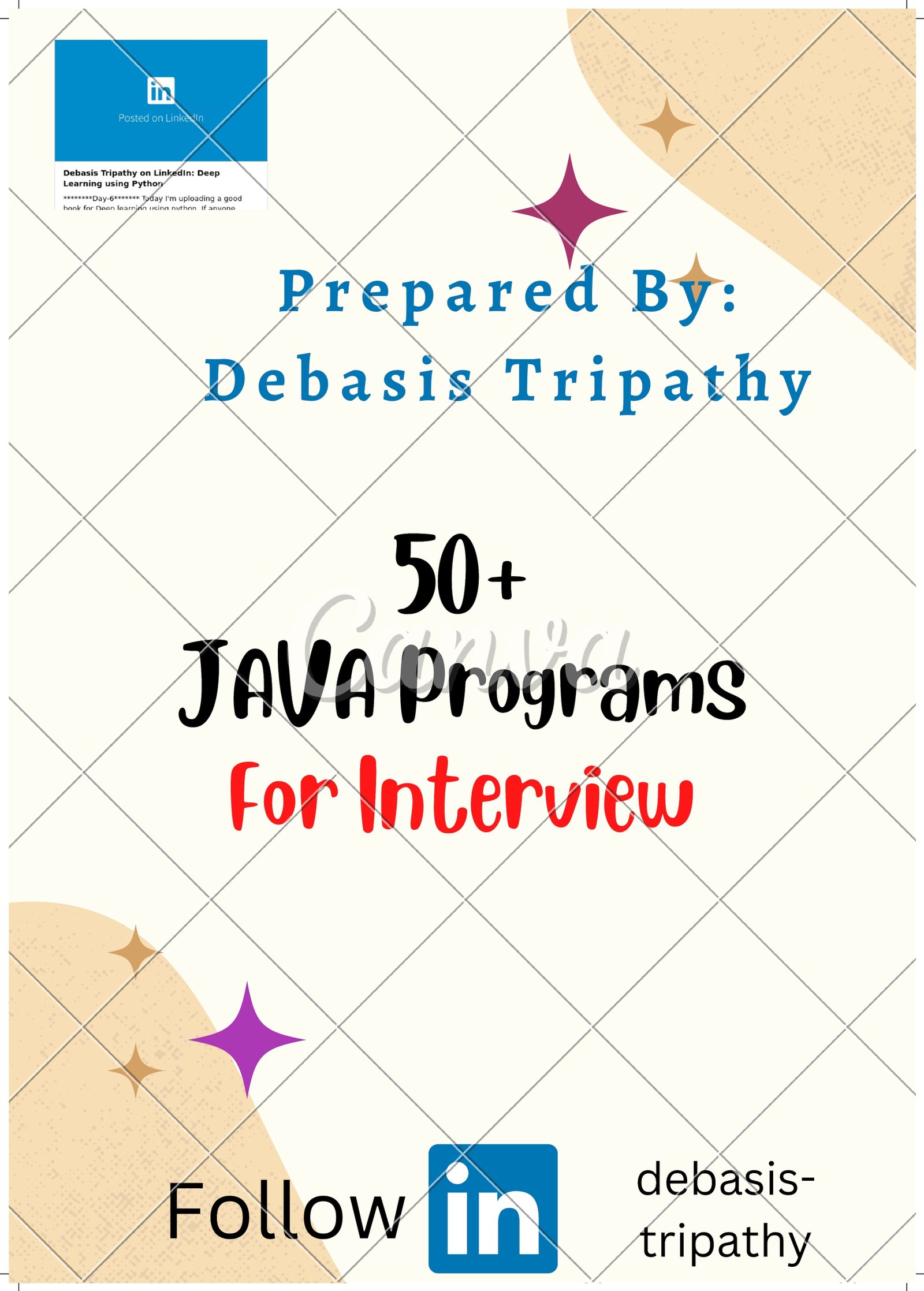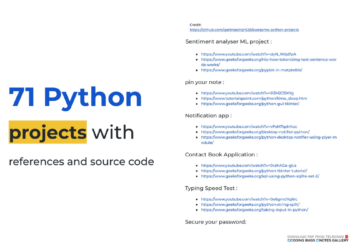When it comes to learning Java programming, having comprehensive and well-organized study materials is essential. In this digital age, handwritten notes may seem old-fashioned, but they offer a unique and effective learning experience.
This PDF presents a set of handwritten notes that cover the basics of Java programming. These notes are designed to provide beginners with a solid foundation in Java and serve as a valuable resource throughout their learning journey.
Overview of the Handwritten Notes
The Java Basics Handwritten Notes provide a concise and easy-to-understand overview of the fundamental concepts of Java programming. These notes serve as a quick reference guide, summarizing key concepts and syntax in a handwritten format. They are structured in a logical manner, allowing beginners to grasp the basics of Java programming in a step-by-step manner.






Table of Contents
To give you an idea of what topics are covered in the handwritten notes, here is a brief table of contents:
- Introduction to Java
- History and features of Java
- Benefits of using Java
- Setting Up the Development Environment
- Installing Java Development Kit (JDK)
- Configuring the Java Environment
- Java Syntax and Structure
- Variables and data types
- Operators and expressions
- Control flow statements (if-else, loops)
- Object-Oriented Programming (OOP) in Java
- Classes and objects
- Inheritance and polymorphism
- Encapsulation and abstraction
The Benefits of These Handwritten Notes
The handwritten notes offer several benefits to beginners learning Java programming:
- Visual Learning: Handwritten notes provide a visual element that aids in memory retention and understanding. The notes contain diagrams, illustrations, and examples that simplify complex concepts and make them easier to comprehend.
- Concise and Portable: The handwritten format condenses information into bite-sized sections, making it easy to carry and refer to whenever needed. You can take these notes with you on the go, whether it’s to a coffee shop or a study session with friends.
- Quick Reference Guide: The notes serve as a handy reference guide, allowing you to quickly review essential Java concepts, syntax, and best practices whenever you encounter doubts or need a quick reminder.
- Personal Touch: Handwritten notes have a personal touch that resonates with many learners. The unique style and individuality of the notes can make your learning experience more enjoyable and memorable.
Conclusion:
The Java Basics Handwritten Notes offer a convenient and effective way for beginners to learn the fundamentals of Java programming. With their concise and visual format, these notes provide a quick reference guide that simplifies complex concepts. Whether you prefer a digital approach or have a penchant for handwritten materials, these notes will serve as a valuable resource throughout your Java programming journey. Embrace the charm of handwritten learning and start mastering Java today. Happy coding!
Nu Of Pages:
6 Pages
Download the Java Basics Handwritten Notes from here
For Java Tutorial PDF From here
